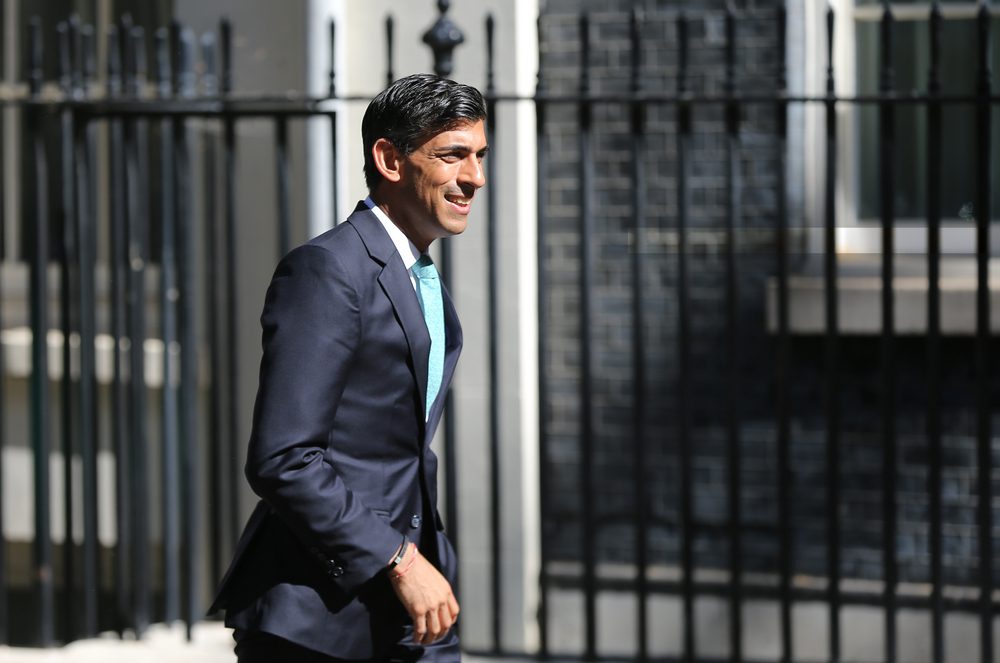
The UK has found its third prime minister in seven weeks. A last-minute opting out of the race by Penny Mordaunt—Rishi Sunak’s sole remaining rival for the Tory leadership after Boris Johnson’s Sunday decision not to run—all but secured his victory.
In a 1.5-minute statement made shortly after his coronation at the party’s head office (where the customary banging of fists on desks took place), he paid tribute to outgoing PM Liz Truss. He warned that the country faced “profound economic challenges,” but that he would “serve with integrity and humility.”
Sunak is expected to formally take up residence in Number 10, Downing Street on Tuesday, October 25th. At 42, he is now the youngest premier to lead the UK in more than two centuries.
In her withdrawal statement, Mourdant said that Sunak had her “full support.”
— Penny Mordaunt (@PennyMordaunt) October 24, 2022
From the start of her candidacy, it seems highly unlikely that Mourdant ever stood a real chance against Sunak. The latest tally put her at a meager 26 votes from her fellow Tory MPs: nowhere near the 100-vote threshold needed to be considered for the position. Sunak, even prior to announcing his candidacy, had already shot past that mark. At last counting, he went on to garner a whopping 193 votes, more than half of all 357 Tory MPs. Monday’s announcement of his win, then, was a mere formality.
Predictably, opposition parties have taken issue with the manner in which the new prime minister had been appointed; consequently, they do not believe Sunak to have a mandate. The Labour party, under Sir Keir Starmer, is leading this charge and is joined by Nicola Sturgeon’s Scottish National Party (which seeks independence from the UK), the Liberal Democrats, and the Green Party. As an alternative, they have renewed their calls for an early general election—a possibility Sunak was quick to rule out.
As can be gleaned from his warning to his fellow Tories ( “unite or die”), made shortly after his win, set before them is the arduous task of mending a broken party; a party that, in the wake of a myriad of scandals and blunders, had squandered much of its political capital after having delivered Brexit to the British electorate. Ergo, chances of near-future electoral success are bound to be slim.
A self-professed Hindu, Sunak was born in Southampton and is the son of immigrants of Punjabi-Indian descent. He was educated at the elite private school Winchester College, studied philosophy, politics, and economics at Lincoln College, and gained an MBA from California’s Stanford University in California. While studying there, he met his future wife Akshata Murty, daughter to N. R. Narayana Murthy, the Indian billionaire businessman. Presently, Sunak and Murty are the 222nd richest people in Britain, with a combined fortune of £730m as of 2022. After graduating, Sunak worked for Goldman Sachs and later as a partner at the hedge fund firms, the Children’s Investment Fund Management and Theleme Partners.
Sunak’s political record tells us that he was a staunch supporter of the Brexit campaign; in the lead-up to the 2016 referendum, he campaigned to secure votes in its favor. During the summer election for Tory leadership (which he lost to Truss), he said he wanted to “fix” the Northern Ireland protocol, reform all EU laws still in place by the next general election, and scrap EU financial regulations.
The former finance minister was a main driver of upping the corporation tax from 19% to 25%, but has said he aims to bring down taxes overall in the future when it’s practical. In his debates with Truss, he sharply criticized her plans to pay for tax cuts via extra government borrowing, and warned her that her economic strategy would damage the nation and cause“misery for millions.” He has spoken extensively about the need to bring down government debt.
On immigration, Sunak has promised his commitment to the government’s Rwanda policy—which aims to send some cross-Channel migrants back to the east African country. He has also advocated a cap on the overall number of asylum claims, and that rules concerning who is eligible to apply for asylum must be made stricter.
Alas, the smooth and, to his credit, unassuming Sunak is nothing if not a product of the globalist ethos. It is to be expected, then, that he will lead and fashion a Tory party that will—as it has done for some time now—compromise on key conservative issues.
With Johnson and Truss in the rear-view mirror, what for the moment is being offered to British conservatives is something more akin to Labour-light.
